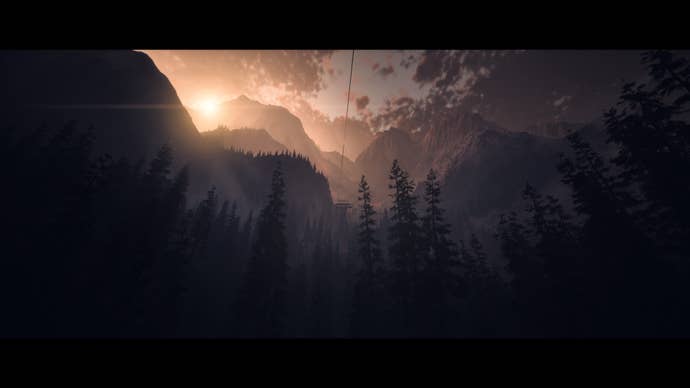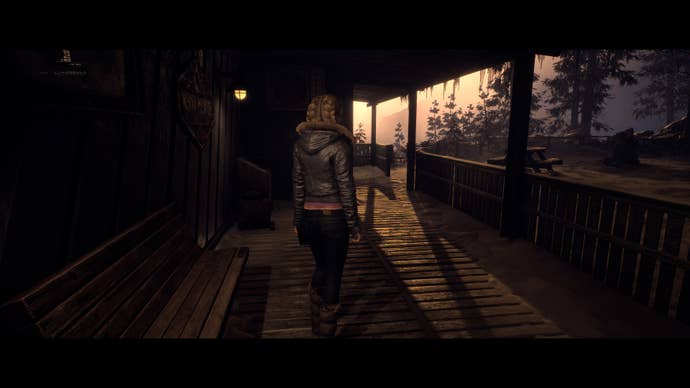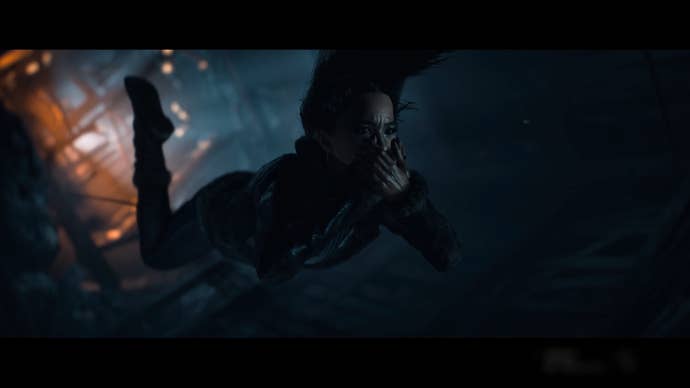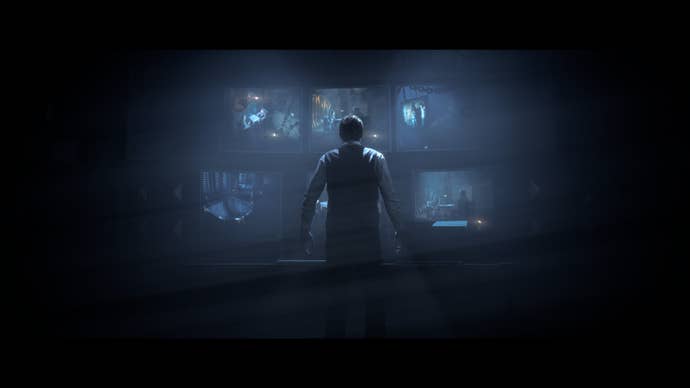Until Dawn review: a last-gen stand-out rescued from the jaws of oblivion
Ballistic Moon's second pass at Until Dawn is more than a remaster yet not wholly a remake — but most importantly, it definitively preserves one of the best modern adventure games with only a few compromises.
I feel like I need to begin this review by clarifying what exactly 2024's Until Dawn is and what you should — and shouldn't — expect from it. We all know it's a re-release of the now-classic 2015 branching-narrative horror-adventure game developed by Supermassive as an exclusive for the PS4, sure. But is it a remake or a remaster? PlayStation Publishing has been surprisingly resistant to labelling it as either, and it's a confusion that surely hasn't helped to manage any expectations, especially among fans of the original.
So: this new "enhanced version" of Until Dawn is the first game from Ballistic Moon, a studio founded by former Supermassive Games employees; and sure, on a technical level you could definitely call it a remake — it's been rebuilt in a new engine, so it qualifies. But that new structure is still built around the performances captured for the original a decade ago, which in a game this character-driven and story-based means that it still sure feels more like a remaster.
There are a handful of new scenes — including the original's clumsily excised pre-order DLC chapter, which has been restored in its proper place to the delight of this long-time fan — but don't expect the story to veer in any wildly new directions, at least for the vast majority of the game. This is not a total teardown à la the recent Resident Evil and Silent Hill remakes, but nevertheless it does bring a bit more to the table than just the graphical upgrade you'd expect from a current-gen remaster.

The graphics upgrade is undeniably the most obvious change, though. Obsessively detail-oriented fans of the original (and I fully admit to being one of those) will be able to appreciate the finer delights of scenes extended through clever editing, new collectibles, and a couple of brand-new ending outcomes that I won't spoil here but which are pretty intriguing. But returning players and newcomers alike can enjoy the fact that this game is pretty. After seeing Until Dawn on the PS5, I finally get why the characters so frequently talk about the stunning mountain environment they're currently holidaying-slash-being-menaced in. In fact, I really wish Ballistic Moon had thought to add a photo mode.
Despite the fact that some of the original's dreamlike charm has been lost among this latest console generation's astonishing graphical fidelity, there's no denying that Until Dawn was always aiming for as much photorealism as possible, and this new version certainly delivers. While something of the original's distinctively PS4-era nostalgic appeal is lost in translation, the artistic intention behind Until Dawn's appearance doesn't feel like it's been compromised; instead, we get to benefit from nearly a decade's worth of graphical advancements, particularly in the lighting.
Even the title "Until Dawn" hits subtly differently when you've watched the sun set on the night before. The 2015 original didn't have such gorgeous lighting, and compensated by having the game start at dusk. In what's honestly the biggest adjustment to the main story, the action has been quietly shifted back in time by a couple of hours, so you get to arrive on the mountain in the full grandeur of golden hour. Watching the last of the light gradually disappear behind the peaks over the course of the first chapter adds a layer of pathos even if you know what happens already. How many of these kids will you manage to escort safely through the night to come? Who has just seen sunlight for the last time? Like almost everything else in this version of the game, it's a little touch that adds humanity; further emphasised by the light makeovers given to the characters themselves, which add ultra-realistic textures on skin details, helping to quite literally flesh the cast out just a little further.

Ballistic Moon hasn't made any world-shattering changes to gameplay either, and what's there is a bit of a mixed bag. Beginning with the unambiguously good stuff: this new version of Until Dawn is accompanied by the welcome introduction of a far more comprehensive suite of accessibility settings than were available in the 2015 version. Sony has been leading the charge on improved accessibility over the past few years, so this is hardly surprising, but it's always nice to see.
In terms of what's changed, the fixed camera angles of the original have been replaced with a 360-degree camera that the player can assert control over in most areas, and — in a welcome ludonarrative improvement if nothing else — characters can actually run some of the time, instead of attempting to (at best) power-walk away from the horrors of the night. Unfortunately, these features don't always play nicely together: character movements still feel tied to those fixed viewpoints, with the result that moving them around can feel awkward and sluggish at times. But hey, at least you can do it a bit faster now.
Ultimately, the worst parts of this new take on Until Dawn aren't so much about what's there as what's conspicuous in its absence. There were some opportunities to add in quality-of-life features made standard in adventure games over the past decade that Ballistic Moon didn't take, perhaps because many of those improvements are so indelibly associated with Supermassive's more recent output.
After multiple playthroughs of The Dark Pictures Anthology, The Quarry, and The Casting of Frank Stone, I honestly expected a little more to have been added to Until Dawn in terms of couch co-op options, UI flags letting you know which interactions will move you on to another scene, or the ability to start a new save without wiping your progress from previously-completed run throughs, for example. I understand of course that Ballistic Moon aren't Supermassive and can't just lift from their work, but surely these are just basic and not exactly proprietary ideas for increased user-friendliness.

Onto the verdict, then, and to be honest I wish I could give different ratings for different players, because whether I'd recommend this game to you or not very much depends on your individual situation.
If you never owned Until Dawn on PS4 and are keen to check it out now that it's finally available on other platforms, you should play this — it's a faithful re-creation that will allow you to at last experience one of the best modern adventure games, and a spooky good time too. And megafans of the original who would gladly double-dip after nearly a decade to see a couple of extra scenes and a general graphics upgrade should also definitely check out this version.
If, on the other hand, you quite liked the original but were hoping for a more substantive overhaul to justify your purchase, maybe don't get this version — or at least, wait for it to go on sale. The main sticking point there from where I'm standing is that there's no discount incentive to "upgrade" from PS4 to PS5 for long-time fans: a benefit to Sony's purse, presumably, of this being technically a remake rather than a remaster.
And if you didn't like the original and were hoping that this mulligan would change your mind, don't get your hopes up: shiny updated graphics aside, I'd estimate that this version is 90% identical. I can guarantee that whatever your gripe was, nothing was overhauled comprehensively enough to negate it, unless you very specifically didn't like Amy Van Roekel's iconic rendition of O Death that played over the original opening credits (which Supermassive evidently got custody of in the split, sadly).

But — speaking as someone who has played Until Dawn on PS4 many, many times and counts it as one of their favourite games — while I won't go so far as to say that I like this new version more than the original, I certainly don't like it less either. Both versions have their minor pros and cons when compared with one another, but in the end, it's all Until Dawn: a game that is simply too good and too important to be locked away and left behind as a relic of a bygone console generation.
Until Dawn was reviewed on PlayStation 5 using a code provided by the publisher. It's available now on PS5 and PC.








